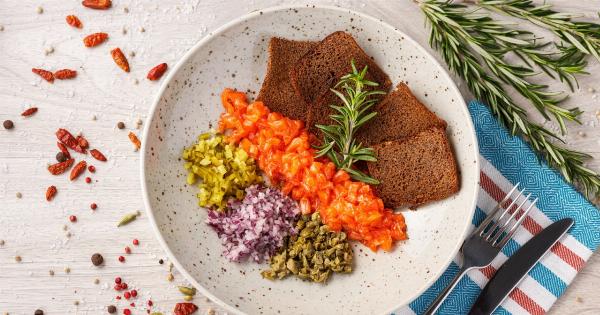Goji Berry, also known as wolfberry, is a popular superfood that has been consumed for centuries due to its numerous health benefits.
In recent years, it has gained attention in the fitness community for its potential role in promoting muscle hypertrophy or muscle growth. This article explores the relationship between Goji Berry and hypertrophy, including its potential benefits, side effects, and how to incorporate it into your workout regimen.
What is Hypertrophy?
Hypertrophy refers to the increase in size or growth of muscle fibers. It occurs when the muscle fibers are subjected to intense exercise, such as weightlifting or resistance training.
Through repeated muscular contractions, the muscle fibers experience micro-tears, which trigger a series of physiological responses aimed at repairing and strengthening the muscle tissue. This results in the growth and development of muscle mass and strength.
The Role of Nutrition in Hypertrophy
Nutrition plays a crucial role in muscle hypertrophy. Providing the body with the right nutrients, especially protein, is essential for muscle repair and growth.
In addition to protein, other nutrients such as carbohydrates, fats, vitamins, and minerals also contribute to overall muscle development. Many athletes and fitness enthusiasts seek out supplements or superfoods that can enhance their nutrition intake to maximize hypertrophy.
Goji Berry and Hypertrophy
Goji Berry is a nutrient-dense fruit that contains a wide range of essential amino acids, vitamins, minerals, and antioxidants. It has been traditionally used in Chinese medicine to promote overall health and longevity.
While more research is still needed to fully understand its effects on muscle hypertrophy, Goji Berry possesses several properties that may support muscle growth.
Antioxidant Properties
Goji Berry is rich in antioxidants, including vitamin C, vitamin A, and various polyphenols. These antioxidants help protect the body from oxidative stress, which can damage cells and hinder muscle recovery.
By reducing oxidative stress, Goji Berry may contribute to a faster recovery process, allowing muscles to repair and grow more efficiently following intense workouts.
Anti-inflammatory Effects
Chronic inflammation can impede muscle recovery and slow down the hypertrophy process. Goji Berry has been studied for its anti-inflammatory effects, thanks to compounds such as zeaxanthin and polysaccharides.
These compounds may help reduce inflammation, allowing the body to recover faster and promoting optimal conditions for muscle growth.
Immune System Support
A strong immune system is crucial for athletes and fitness enthusiasts, as intense workouts can temporarily suppress immune function.
Goji Berry contains immune-boosting compounds such as vitamin C and zinc, which can help support a healthy immune system. By maintaining a robust immune system, individuals can train consistently and avoid setbacks due to illness or reduced performance.
Potential Side Effects of Goji Berry
While Goji Berry is generally considered safe for consumption, it may cause adverse effects in some individuals, especially when consumed in large quantities or mixed with certain medications.
Common side effects include gastrointestinal issues such as diarrhea, nausea, and abdominal discomfort. Additionally, Goji Berry may interact with anticoagulant drugs, blood pressure medications, or diabetic medications. It is important to consult with a healthcare professional before adding Goji Berry or any new supplement to your routine.
Incorporating Goji Berry into Your Workout Regimen
If you’re interested in incorporating Goji Berry into your workout regimen to potentially support hypertrophy, there are several easy ways to do so:.
1. Fresh or Dried Berries: Consuming fresh or dried Goji Berries as a snack is a simple way to reap their benefits. They can be eaten alone, added to smoothies, mixed with yogurt, or sprinkled over salads.
2. Goji Berry Supplements: If you prefer a more concentrated dose of Goji Berry, supplements in the form of capsules or powders are available. It is advisable to follow the recommended dosage instructions provided by the manufacturer.
3. Goji Berry Tea: Goji Berry can be brewed into a tea, providing a soothing and refreshing way to consume this superfood.
4. Combination with Other Superfoods: Consider combining Goji Berry with other superfoods that support muscle growth, such as spirulina, chia seeds, or maca powder, to create a nutrient-dense pre- or post-workout snack.
Conclusion
While the direct impact of Goji Berry on hypertrophy is still being studied, its antioxidant properties, anti-inflammatory effects, and immune system support make it an appealing addition to a balanced diet and workout regimen.
Remember to consult with a healthcare professional before making any significant changes to your nutrition or supplementation routine. By combining proper nutrition, exercise, and potentially incorporating superfoods like Goji Berry, you can optimize your chances of achieving your fitness goals and supporting muscle growth.































